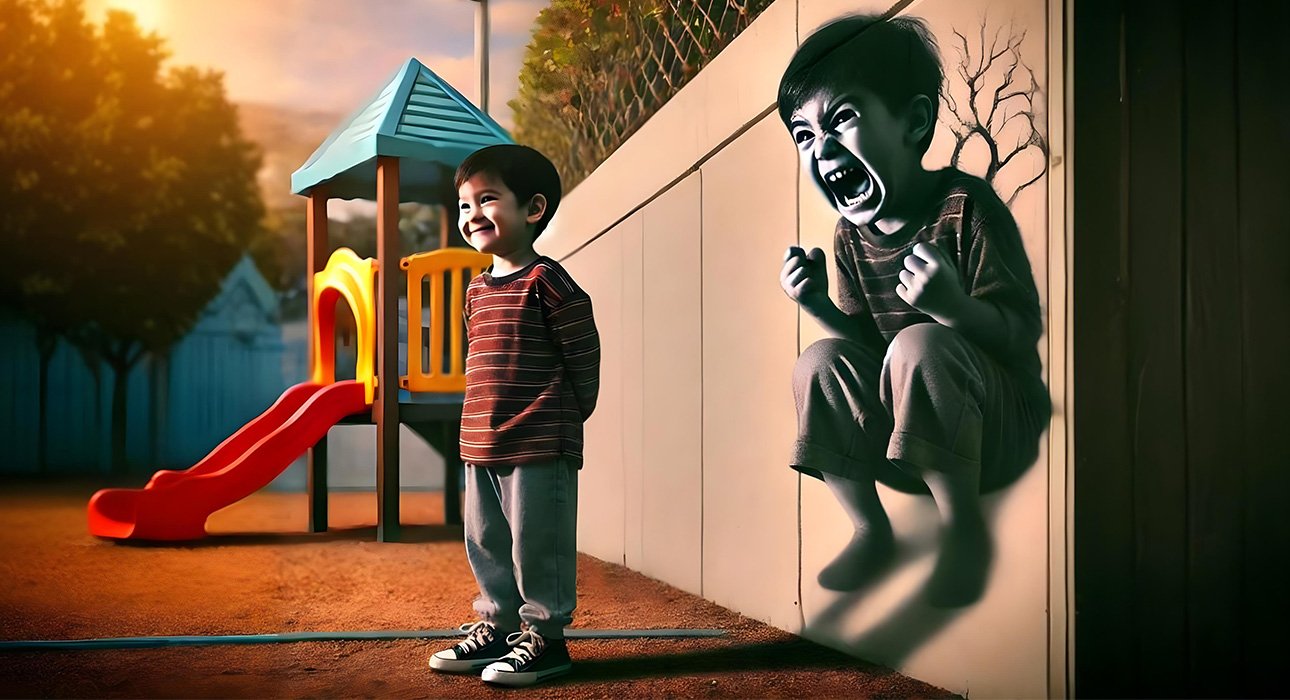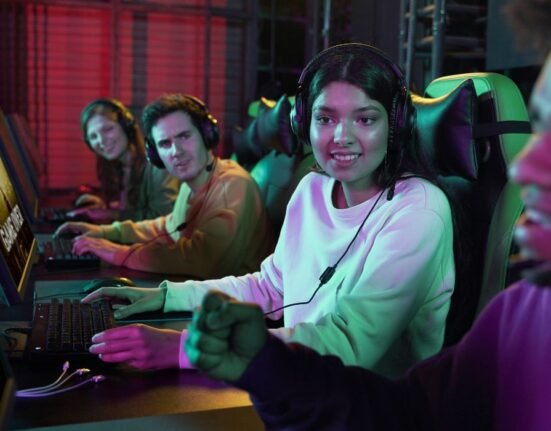Once upon a time, in a world full of aspiring engineers, mini-Mozarts, and child prodigies, there lived a strange, persistent belief: bachho ko dard nahi hota – kids don’t feel pain. Pain was an adult concept, reserved for tax-paying, bill-stressed grown-ups. Kids, with their happy, simple lives, surely couldn’t experience anything like anxiety, stress, or burnout. They simply don’t have the right age license to feel any of it, right?
Enter young Arjun, a ten-year-old stuck in the endless hamster wheel of “academic excellence.” But Arjun is special. He, like so many kids, has mastered the art of nodding, smiling, and silently bearing the weight of a thousand unsaid words. Like his classmates, he’s a master of internalized suffering. After all, kids are like Teflon – emotions just slide right off. Or so the world would like to believe.
The Pressure Cooker Classroom
In the classroom, Arjun and his friends are caught in an academic Olympics. With deadlines tighter than their lunch breaks and syllabi longer than bedtime stories, they juggle it all: math, science, history, and the looming threat of being left behind. But ask any adult, and they’ll tell you with a smile, “Oh, it’s just a little pressure! Pressure is good for kids. Builds character!”
The teacher stands at the board, scribbling equations faster than Arjun can blink. Today’s lesson is “How to Memorize Everything with Zero Sleep.” The kids are furiously taking notes. It’s an unspoken rule that no one raises their hand to say they’re confused or overwhelmed. Any sign of weakness might break the carefully constructed facade. And bachho ko dard nahi hota, right?
At recess, his friend Sara whispers to him, “I haven’t slept in three days. I’m so tired my brain feels like mush.” Arjun just nods, and sighs. He wants to say, “Me too,” but he knows the drill. “Hey, we’re strong!” they say to each other with nervous grins, pushing down the knots of stress inside. They go back to their books. After all, they’re invincible.
The Parental “Motivation” Sessions
Back home, Arjun faces the pep talk. Every night, his parents sit him down for a performance review that would put corporate quarterly reports to shame. They have charts, spreadsheets, and statistics on the competition’s grades. “Arjun,” his dad begins, “you’re lagging in math. You got an 88, but the topper got a 96. You have to study harder. We’re doing this for you, so you have a bright future.”
Arjun nods obediently, feeling the weight of his parents’ expectations settles over him. It’s not that they don’t love him – they just think kids are made of something stronger, something unbreakable. He’s still young, fresh, untouched by the roughness of adulthood. Surely he can handle the pressure.
The family mantra is clear: bachho ko dard nahi hota. Kids are like little tanks, able to withstand whatever academic and emotional artillery the world throws at them. If he feels anxious, he’s supposed to snap out of it. Stress, they tell him, is an adult word, an adult problem.
The “Stress Is Not for Kids” Doctrine
By age 14, Arjun is a professional overthinker. He’s developed a knack for hiding every sign of stress. He’s got dark circles, but he says it’s just late-night “studying.” His stomach aches, but that’s just a sign he needs to “push harder.” He’s even started having panic attacks before exams, but he chalks it up to “normal pre-test jitters.” After all, stress is an illusion – kids like him are immune to such trivial things.
But his friends tell a similar story. Divya, his classmate, has been experiencing insomnia and can’t remember the last time she woke up feeling rested. Rahul’s hands shake before every exam, and he’s developed a stomach ulcer, but his parents think it’s because he’s not dedicated enough. They remind him: bachho ko dard nahi hota.
Meanwhile, the adults around them exchange jokes about how easy kids have it. “Ah, if only I could be a kid again, without any worries or stress!” they say, conveniently forgetting that kids today juggle the equivalent of five adult jobs, six extracurriculars, and constant surveillance through “parental guidance.”
The Breakdown That Nobody Saw Coming
Finally, Arjun’s mental fortress begins to crack. One evening, he’s sitting in his room, staring at his chemistry book. The words start to blur, and his chest tightens. The world feels heavy, but he has no words to describe it. The pressure has finally worn him down, but he’s been so conditioned by the mantra bachho ko dard nahi hota that he doesn’t know how to ask for help.
That night, his parents find him pacing his room, visibly distressed. His mother looks at him with concern and says, “Arjun, what’s wrong?”
He takes a shaky breath and finally lets it out. “I… I think I’m stressed. I don’t know if I can do this anymore.”
For a moment, there’s silence. His father looks bewildered, his mother a bit shocked. “But you’re just a kid, Arjun. You’re not supposed to feel this way. Stress is for grown-ups.”
The irony of the situation doesn’t hit them. The very mantra that has been fed to him for years is now their way of deflecting his reality.
The Psychologist’s Couch
After days of pleading, Arjun’s parents agree to take him to a psychologist, a decision made with great reluctance. They sit there, looking at each other like this is a final resort. “We didn’t realize kids could feel so much pressure,” his mother says, bewildered.
The psychologist listens, nodding. “It’s a common misconception. Kids do experience stress, anxiety, and even depression. They’re not immune to emotions. But the problem is, when we keep telling them bachho ko dard nahi hota, they start believing that their feelings are wrong or invalid.”
Arjun’s parents exchange guilty looks as the psychologist continues, “The idea that kids can’t feel pain leads them to bottle up their emotions. They’re told to be tough, that only adults can feel overwhelmed. But kids need a safe space to express their stress too.”
The Great Awakening
It takes time, but Arjun’s family begins to change. They start listening to him, letting him express his worries without brushing them aside. His mother reads up on the importance of mental health for kids, while his father learns that vulnerability is not weakness.
Bachho ko dard hota hai, they realize, and that’s okay. They’re not supposed to be superheroes, after all. Just kids, doing their best in a world that finally understands they’re not immune to life’s pressures.
Happy Children’s day!













Leave feedback about this